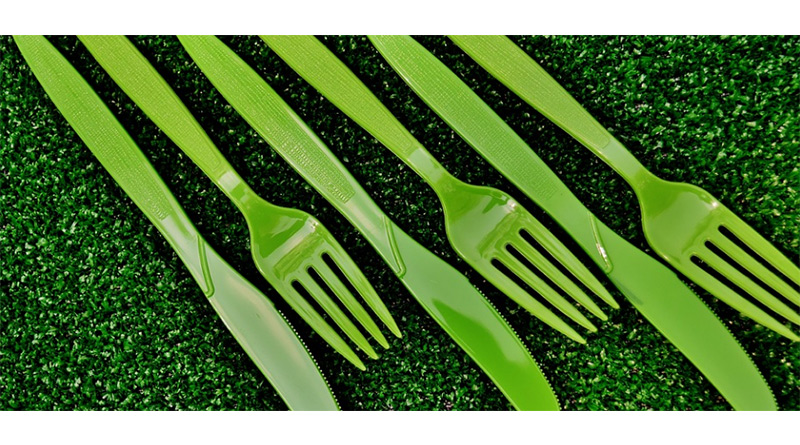Government Planning to Ban Single-Use Plastics

Single-use plastics such as plates, cutlery and food containers could all be banned in England after the government launched a public consultation into the issue.
The ban could also extend to polystyrene cups in a bid to eliminate avoidable plastic waste.
According to estimates, England uses 1.1 billion single-use plates and 4.25 billion items of single-use cutlery — most of which are plastic — per year, but only 10% are recycled upon disposal. Under proposals in a 12-week public consultation, businesses and consumers will need to move towards more sustainable alternatives.
The Government is going further by also launching a separate call for evidence to address other sources of plastic pollution. This will ask stakeholders for views on tackling commonly littered plastics such as wet wipes, tobacco filters, sachets and other single-use cups.
Future policy measures that could be explored include banning plastic in these items, and mandatory labelling on packaging to help consumers dispose of these items correctly.
The Government will also examine how we can put the responsibility firmly at manufacturers’ doors to make sure they are doing everything they can to tackle single-use plastics, including litter from cigarette butts.
The UK uses 2.5 billion disposable coffee cups per year, while plastic sachets are often not recycled due to their small size, which makes it hard to segregate and clean them. The Government will consider how a move to sustainable alternatives can be achieved without unfairly impacting on consumers.
Many companies are already taking action to cut this avoidable waste, with many shops already stocking alternatives to conventional plastic wipes, and today’s move will urge more to do the same.
Environment Secretary George Eustice said:
There is growing recognition of the damage that plastics cause to our environment and marine life in particular. We want to reduce the use of plastics in packaging and ban its use in items linked to littering.
We have already banned plastic straws, stirrers and cotton buds and now plan to extend the ban to cutlery and balloon sticks where alternative materials, like wood can be used.
The consultation comes a week after the passage of the Environment Act which will enable tougher action on single-use plastics in England. The Act includes powers to place charges on single-use items, and the call to evidence will explore whether such a charge could be placed on single use cups or sachets to encourage a shift away from throwaway culture.
The UK is a global leader in combatting plastic waste and has already taken major steps to tackle plastic pollution, banning microbeads in rinse-off personal care products, and restricting the supply of single-use plastic straws, stirrers and cotton buds.
Following the huge success of the 5p charge on single-use carrier bags, which cut consumption in the main supermarkets by 95% since 2015, we increased the minimum charge to 10p and extended it to all retailers, ensuring we can take billions more bags out of circulation.
Industry is addressing plastic waste through the UK Plastics Pact, a collaboration between businesses from across the entire plastics value chain, supported by the government and coordinated by the Waste and Resources Action Programme (WRAP).
Marcus Gover, CEO WRAP, said: in England. Eliminating problematic and unnecessary single-use plastic is essential if we are to turn the tide on plastic pollution and keep plastic out of the environment.
The UK Plastics Pact set an ambitious target to take action in this important area and its members have already eliminated problematic plastic by more than 40%. We now need regulation to follow and ensure that all businesses take steps to eliminate problematic and unnecessary plastic
